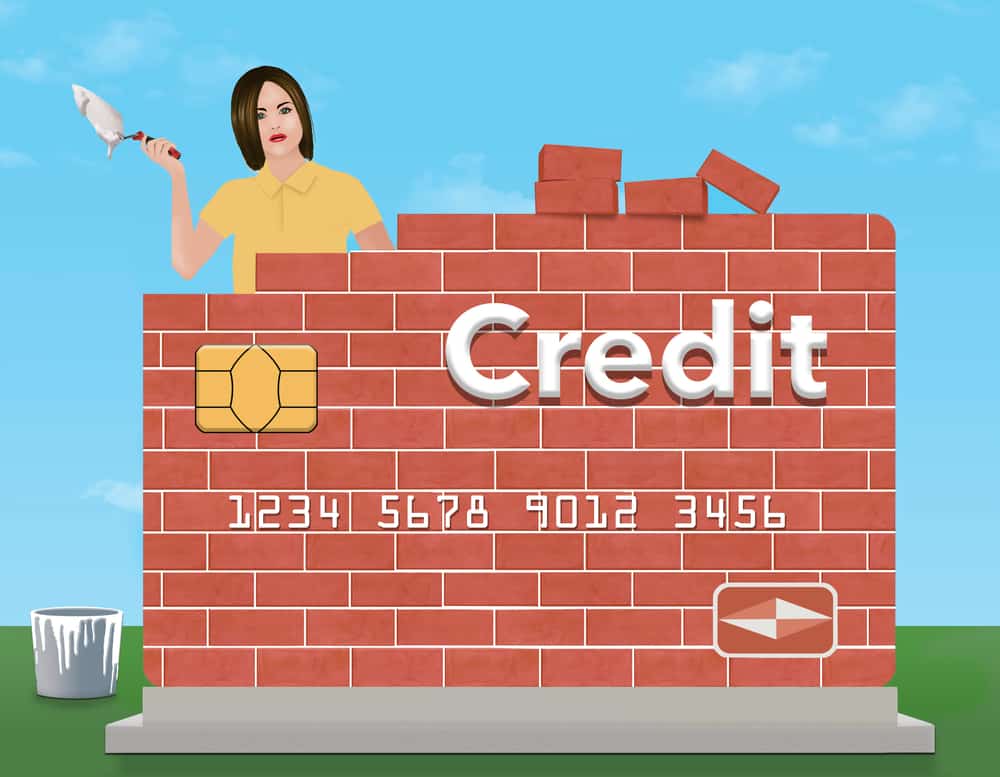Knowing how to build credit is an important life skill that too many people have to learn on their own. The good news is that guides like this one exist to help you develop your financial literacy skills and reach your financial goals. When it comes to credit, it’s important to think of the credit-building process as a means to an end that might take six months to several years to develop. It can even involve taking steps that might seem counterintuitive to proving your credit-worthiness.
Table of contents
Check Your Credit
Some people embark on credit-building journeys and discover they already have good credit histories. Even so, when you know how to build credit, a good credit history can be upgraded to a great one. To start, you need to know where you stand. Start by checking your credit score with a free and reputable service. If your bank does not provide a free credit score checking tool, consider the following options:
- Nerdwallet
- CreditKarma
- Truebill
Your credit score and the information on these platforms only offer a snapshot of your credit history. Request your full reports from the credit bureaus. You are entitled to one every year. Review your reports and check for inconsistencies. Query any inconsistencies you find.
Review Credit Alerts
Most services that allow you to check your credit should also provide credit alerts. An important step in learning how to build credit is to resist the urge to silence or ignore these. Even when a credit alert looks familiar, double-check to ensure it comes from you. You might think you don’t have a credit history or identity worth stealing, but thieves may believe otherwise.
Monitoring your credit alerts can help you catch fraud from the start, before thieves change your information or commit more crimes with your data. It can also help you catch errors from your bank.
Seek Authorization
If you have a family member or even a friend with decent credit, ask him or her to add you as a secondary user to an existing account. If that individual feels uncomfortable with the idea, suggest that he or she keeps the card. This eliminates the possibility of you creating unwanted debt, while still providing you with the benefit of piggy-backing off someone else’s credit.
According to Experian, when choosing an account as you learn how to build credit, consider one that meets the following criteria:
- Flawless payment history
- Low credit utilization rate
- Open for several years
Get a Credit Builder Loan
When calculating your credit score, organizations consider your credit mix. This relates to whether you have revolving or installment debt types. Credit cards are revolving debt. Your installment debts would include car payments or personal loans. Some companies offer credit builder loans to help you build a solid credit history and improve your credit mix. Common options include Self and local credit unions.
When learning how to build credit, you will find that credit builder loans do not operate like regular personal loans. You do not get the money upfront to spend. Instead, you pay money to the lender. The lender then puts this money in a savings account. At the end of the loan term, you then gain access to this money. These loans generally range from $300 to $1,000.
Get a Secured Credit Card
Having access to your own credit card is an amazing experience, but it takes some time to learn responsible habits. Because of this, if you are new to learning how to build credit, banks might start you off with a secured card and a low limit. In this arrangement, you provide the bank with money upfront and borrow against it. Your credit limit is usually a certain portion of the money held. This operates closer to a debit card than a credit card. However, using it as a debit card is a bad idea.
When you have a debit card account, it is usually fine to wipe out your balance from time to time. With a secured credit card, the money deposited is not supposed to be treated as cash. You should still treat it as debt when learning how to build credit. Credit recommendations are to keep your utilization rate as low as possible. Ideally, your credit utilization should be 10% or less.
Get Bill Credits
Experian has launched a program that allows you to get credit for good payment histories for utilities and rent. These bills do not usually show up on your account when in good standing. If you have a perfect payment history, though, it can boost your credit score. The program is known as Experian Boost. Note that not all credit scoring models take these payments into account, but it is worth trying.
Here are some bills you can try to get credit for:
- Phone bill
- Internet bill
- Rent payments
- Gas bill
Owe Money Strategically
When banks lend you money, they make money off the interest. Financially responsible people pay their bills in full every month, so banks must find the gray line between this and being able to charge for credit. An important step for how to build credit is to always pay at least the minimum due. However, don’t get into the habit of paying only the minimum. Credit card interest is among the highest.
Installment loans require a specific payment every month. There is nothing wrong with paying these off early, but your credit benefits more from holding on to your installment loans. Try to keep at least one active. If you decide to pay them all off, you can get a credit-builder installment loan to hold the spot, regardless of your credit score.
Are you looking for good credit cards to start with while you learn how to build credit? Check out our Money Mash list of credit cards for no credit.
